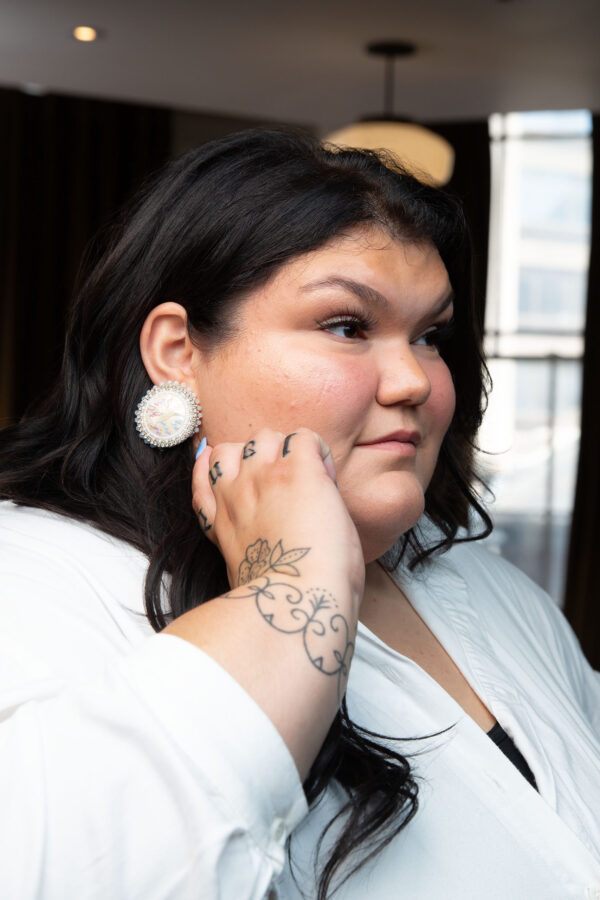Even as a child, Emma Pennell, BMus’23, had power in their voice. Growing up in South River, Ont., the two-spirit Mi’kmaw of Ktaqmkuk sang at all the county fairs. Delighted to make the cut for ‘Sundridge Fall Fair Idol’ as a 10-year-old, Pennell recalls exiting the audition with “one big Hallelujah.” The celebratory outburst brought the judges running. “They made me come back in and sing parts of the Hallelujah Chorus.”
They won the competition singing the 1940s pop song Don’t Fence Me In, with an adjudicator advising Pennell to seriously consider classical voice and opera. Ten years later, they did, coming to Western to study vocal performance. Here, they raised their voice, performing as Alice Ford in Verdi’s Falstaff and as an advocate for increased Indigenous visibility.
Pennell is currently studying voice at The Glenn Gould School in Toronto, under Canadian soprano and fellow Western grad Adrianne Pieczonka, BMus’85, DMus’12.
Keri Ferguson sat down with Pennell before they headed to the highly competitive program.
Keri Ferguson: When did you choose to study opera?
Emma Pennell: My first day of classes at Cambrian College, I heard my friend (soprano) Hannah Crawford sing in this grandiose, operatic style. I was equal parts amazed and terrified. I caught the bug for opera that day. It fit like a glove. I started lessons that week and it’s been an incredible journey since. After I earned my diploma, I knew I wanted to take opera seriously and chose to study at Western.
KF: How did it feel to land a lead role in Falstaff?
EP: It was the absolute pinnacle for me. I knew I wanted to be on that stage from the day I set foot in the Paul Davenport Theatre. I wanted to be in that moment, with the light on me, in costume. It was hard work, but there’s something so special about this art form. You get to know the characters deeply, come to love the stories and are so excited to tell them to the audience.”
KF: You also explored your Indigeneity, minoring in Indigenous Studies.
EP: I wanted to learn more about myself and the community around me. Professor Diana Lewis had a huge impact on me, inspiring a lot of my writing, research and even my music.
I became more intentional, making a point of telling people who I am, so they’d be comfortable identifying themselves, too. I’m not just Emma, a musician. I’m Emma, an Indigenous musician.
Studying music, with a majority of white students, I wanted to be in the room, loud and proud of who I am.
KF: How did that influence your work as a student leader?
EP: While I was on student council, I advocated about the importance of inviting Indigenous artists and performers to the faculty. There’s a community of Indigenous opera singers and musicians who love their work and their identity and culture too. I wanted to talk to them and learn from them.
This led to the most wonderful opportunity where (Canadian Métis mezzo soprano and Western alum) Rebecca Cuddy, BMus’15, let me shadow her on the National Day for Truth and Reconciliation. It was culturally immersive and showed me what my future could look like as an Indigenous performer.
